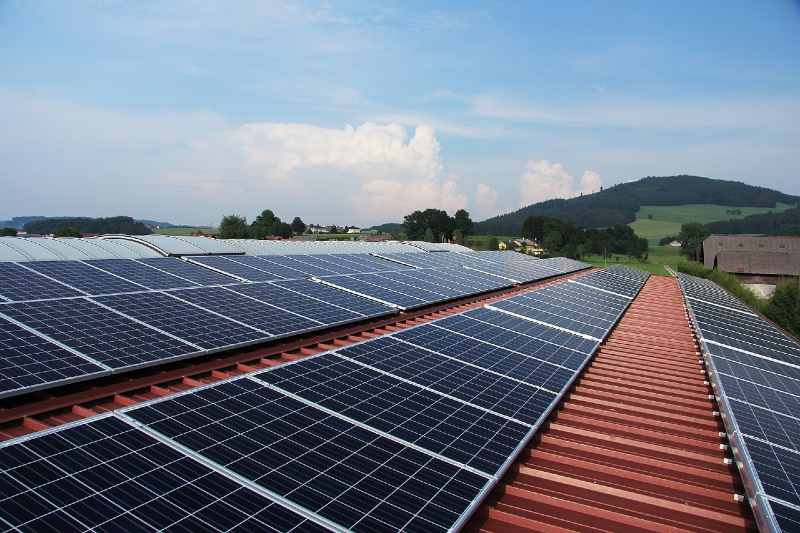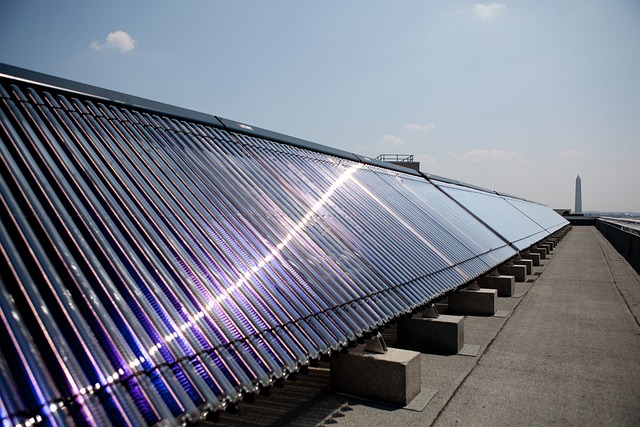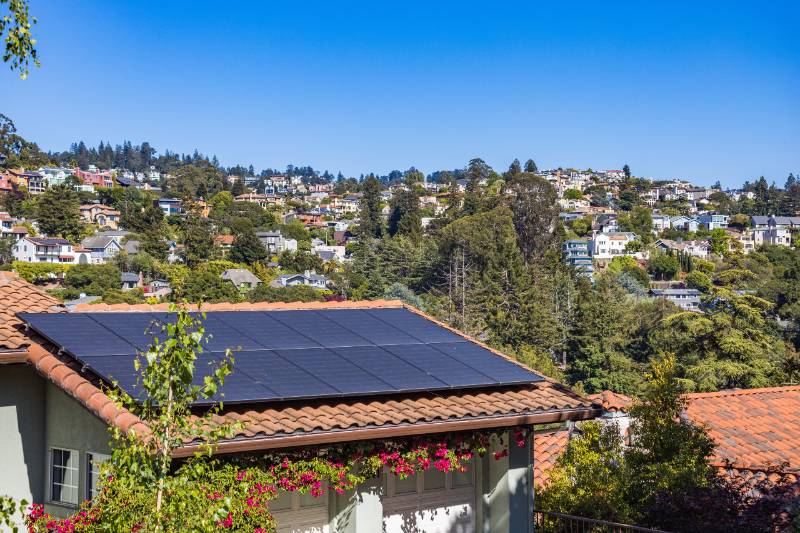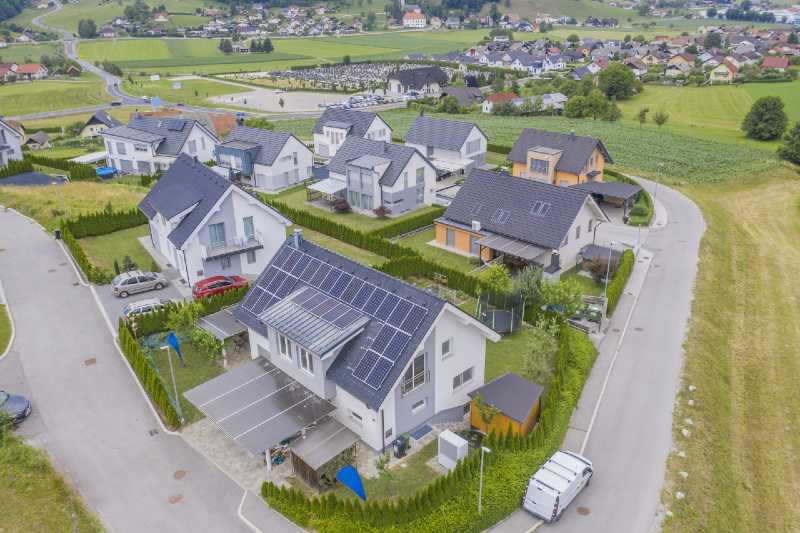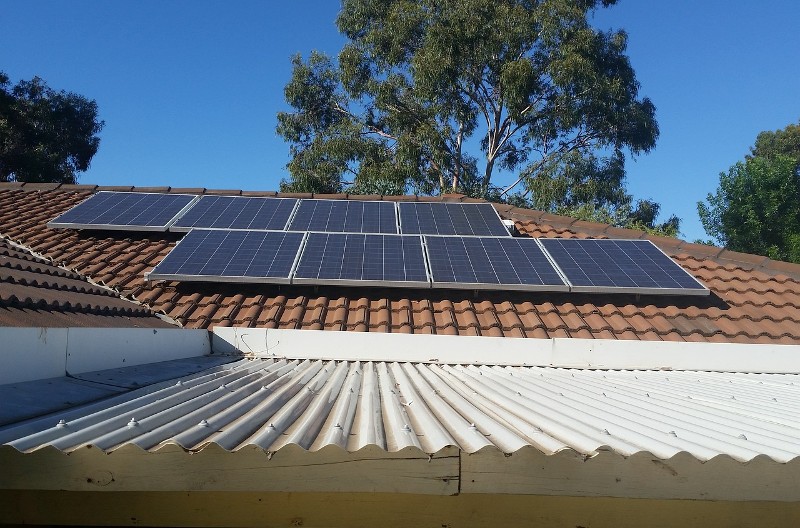You installed solar panels to save money on your electric bill, but now your electricity bills are even higher than it was before! What gives?
Don’t worry, we’re here to help.
Many people who switch to solar power find that their electricity bills actually go up at first. This can be confusing and frustrating, but there is a reason for it.
In this blog post, you’ll discover the reasons why your electricity bills might is so high with solar panels, and we will give you some tips on how to fix the problem.
Why Is My Electric Bill So High With Solar Panels?
1. Your Solar System Isn’t Working… Yet
Having your solar panels installed doesn’t mean that they are going to immediately start producing electricity and saving you money.
You still need the permission of your utility solar company to hook up your solar panels to the grid.
They must make sure your system meets the standards set by your state and the utility solar company or else it could cause problems for the entire electrical system.
This process usually takes 3-4 weeks but it can take up to 3 months after solar installation to get permission to operate (PTO.)
So if your electric bill is so high with solar panels, it may be because you don’t have PTO yet.
2. It’s a True Up Bill
If you have a grid-tied solar system, then you use net metering.
Net metering is the process by which you buy and sell electricity to the grid.
As long as your solar system is connected to the grid, whenever you produce more electricity than you use, the excess energy is sent back to the grid and you earn energy credit.
This credit can be used to pay your electric bill in the months when you produce less than you use.
Now, every year your utility company will send you a True Up bill, or a bill for the net energy credit that you have with them.
If you purchased more electricity than you sent to the grid, then you’ll have a bill for the excess energy that you bought and the true-up bill is an annual bill, so it can be quite expensive.
3. Your Solar System Is Faulty
This is very unlikely but sometimes solar panels can be faulty.
There are a few reasons why this might happen including:
- Damage during transport or storms
- Manufacturing defects
- Poor installation of the solar system (bad wiring, etc.)
One way to check if your solar system is faulty or not is to check your energy production data on the website or app.
If you notice some strange patterns or a sudden drop in production, there could be something wrong.
In this case, contact your solar system installer right away and they’ll be able to fix the problem.
4. Faulty Electric Meter
The electric meter is the device that measures your energy consumption.
It is usually located in the same place as your electric service panel, also known as a breaker box.
When you consume electricity from the grid, it goes through the electric meter and registers on the display.
And if you are sending electricity back to the grid via net metering, then your electric meter will run backward.
The electric meter is usually read monthly by your utility company, which is when you receive your electric bill.
So if the electric meter isn’t properly recording the electricity that your solar panels are sending back to the grid, then it’ll be like you aren’t producing any electricity and your bill will be higher.
5. Your Solar System Is Dying
Solar panels suffer from something called the “degradation effect.”
All solar panels slowly lose the ability to convert sunlight into electricity.
This means that after a few years your solar panels may not be producing as much electricity as before.
Most high quality solar panels have a degradation rate of around 0.5%/year, meaning that if the first year the panels were producing 1,000kWh, the following year they may only be producing 995kWh, and the year after that it’ll be producing 990.025kWh.
So if you have an old solar system, it may not be producing as much electricity as when it was new. Thus, you have a high electric bill.
6. Weather Conditions
Weather can have a major impact on solar production.
Cloudy days, snow, and storms can all reduce the amount of electricity your solar panels produce.
Shading is also a huge factor, especially if your solar panels are installed in series.
In this case, even a small amount of shade can greatly reduce electricity production, causing your electric bill to be high.
This is why it’s a good idea to check your energy production data regularly.
This way you can judge if your solar panels are producing enough electricity and know when to call for repairs or maintenance services
7. Your Electricity Usage Has Changed
Another reason why your electric bill might be so high with solar panels is that your energy usage has increased.
If you start using more appliances and electronics or if the number of people living in your home has increased, this can cause a bump in your electric bill.
Even though your solar system is still producing the same amount of energy, you’re now using more of it.
8. Utility Rates Have Increased
Your electric bill might be higher if the utility rates in your area have gone up.
This is something that can happen without warning and it’s important to remember that the electricity you use from the grid comes at a cost.
If rates go up, then your electric bill will also increase, even if you’re using the same amount of electricity as before.
So if you notice that your electric bill is higher than usual, it’s a good idea to check for any of these possible causes.
How to Reduce Your Energy Consumption
1. Use Energy Efficient Appliances
One way to reduce your energy consumption is to only use appliances and electronics that are highly efficient.
Look for the Energy Star label when shopping for new appliances, as these have been proven to be significantly more energy efficient than others.
You can also install smart devices in your home that allow you to control your electricity usage remotely.
For example, some smart thermostats are able to switch off your heater or air conditioner when no one is at home.
Switching to energy efficient electronics alone can save you up to 25% on your electric bill.
2. Unplug Appliances When Not In Use
Another easy way to reduce your energy drain is to simply unplug appliances and electronics that aren’t in use.
Even when turned off, these devices may still be using electricity.
This is why it’s a good idea to plug your devices into power strips, which you can easily switch off when no one is at home or when the device isn’t in use.
Unplugging devices can save you $100 per year.
3. Install LED Lights
Along with appliances and electronics, lighting is another huge source of energy consumption in most homes.
Invest in LED light bulbs, which are able to solar panels produce the same amount of light as old incandescent bulbs but consume much less energy.
These can be used anywhere a standard bulb is needed and has a much longer lifespan than regular bulbs.
Switching to LEDs can save you around $4,000.
4. Use Solar Water Heaters
If you live somewhere with extremely cold winters, consider switching to a solar hot water heater.
These systems use energy from the sun to heat up your water tank, helping to reduce your overall utility bill.
You can also look for other ways to harness free solar energy in your home, such as through solar panels or passive solar designs.
Investing in a solar water heater can reduce your water heating bills by up to 80%.
5. Upgrade Your Existing Solar System
If you have an older solar system that isn’t producing as much electricity as it used to, consider upgrading to a newer model.
Modern solar panels are able to convert more sunlight into energy than older models, meaning they can solar panels produce a higher amount of electricity with the same number of panels.
Last Words
There are many reasons why your electric bill may be higher than usual, from True Up bills to faulty solar systems and bad connections.
However, with a little foresight and planning, you can take steps to reduce your energy usage and keep your energy bills under control.
We hope this article has cleared up any questions you might have.
If you still have any questions please share them with us.


